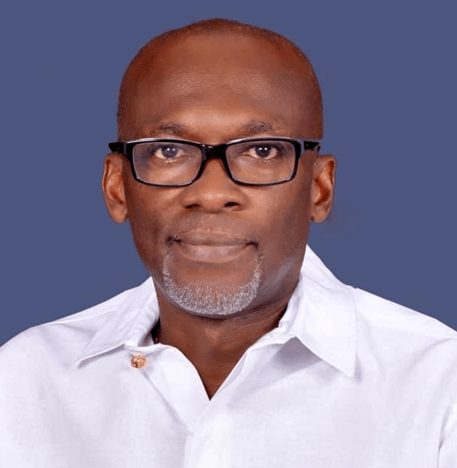By Peter Martey AGBEKO
Corruption has long been a thorn in the side of Ghana’s development. Despite the country’s robust democratic institutions and anti-corruption laws, the menace persists, eating away at public trust and siphoning resources meant to improve livelihoods.
A significant step in addressing this challenge is the introduction of lifestyle audits—a bold and pragmatic tool for tackling corruption, money laundering, and other illegitimate activities.
What are lifestyle audits?
Lifestyle audits involve examining the lifestyles of individuals to ensure that their wealth, assets, and expenditures are consistent with their legitimate income. This investigative approach is particularly effective in unearthing unexplained wealth, a hallmark of corruption and financial crime.
For instance, how does a mid-level public servant own a mansion in an affluent neighborhood, drive luxury vehicles, and send their children to expensive international schools? Such incongruities should trigger red flags and prompt deeper scrutiny.
Countries like South Africa and Kenya have adopted lifestyle audits as part of their anti-corruption arsenal. The results have been promising, exposing cases of illicit wealth accumulation and deterring others from engaging in corrupt practices. Ghana, with its escalating concerns over corruption and money laundering, must follow suit.
Why lifestyle audits are critical in Ghana
The Auditor-General’s reports often highlight staggering amounts of unaccounted-for funds in public institutions. Coupled with periodic revelations of fraud in the private sector, it is clear that Ghana needs a more rigorous framework to track and monitor wealth accumulation.
Lifestyle audits would serve as both a preventive and corrective measure. Preventive because the very existence of such audits will deter individuals from indulging in corruption. Corrective because they can help recover stolen funds and prosecute offenders.
Moreover, lifestyle audits align with the broader principles of accountability and transparency that Ghana espouses. They would reinforce the idea that public service is about service, not personal enrichment.
Who should be subject to lifestyle audits?
Lifestyle audits should primarily target individuals in positions of power and influence, such as:
- Politicians: Members of Parliament, ministers, and regional executives should be scrutinised to ensure their assets match their declared earnings.
- Public Officials: Heads of state-owned enterprises, senior civil servants, and those in procurement roles are often in positions where abuse of office is possible.
- Judiciary: Judges and magistrates must also be held to account, as corruption in the judicial system erodes public trust in justice delivery.
- Private Sector Executives: Business leaders, particularly those in industries susceptible to financial crimes like real estate and mining, should also be included.
The role of the Office of the Special Prosecutor (OSP)
In Ghana, the Office of the Special Prosecutor (OSP) is well-placed to spearhead lifestyle audits. Established to fight corruption and ensure accountability, the OSP has the mandate and expertise to investigate wealth discrepancies.
The OSP should collaborate with other institutions, such as:
- The Economic and Organised Crime Office (EOCO): For tracking financial crimes and tracing illicit wealth.
- The Financial Intelligence Centre (FIC): For monitoring money laundering activities and suspicious transactions.
- The Ghana Revenue Authority (GRA): To cross-check income declarations against tax filings.
The OSP can establish a dedicated unit for lifestyle audits, equipped with forensic accountants, legal experts, and data analysts. This unit would focus on identifying individuals with unexplained wealth, investigating the sources of such wealth, and prosecuting offenders.
Challenges and how to overcome them
While the idea of lifestyle audits is laudable, its implementation will face several hurdles:
- Political Interference: Politically exposed persons may attempt to stifle investigations or manipulate outcomes.
- Solution: Guarantee the independence of the OSP and shield it from undue influence.
- Resource Constraints: Lifestyle audits require significant resources, from skilled personnel to advanced forensic tools.
- Solution: Invest in capacity building and leverage technology to streamline investigations.
- Public Resistance: Some may view lifestyle audits as an invasion of privacy.
- Solution: Conduct public awareness campaigns to highlight the benefits of audits in curbing corruption and ensuring fairness.
- Selective Justice: There is a risk that audits may target only political opponents or certain groups.
- Solution: Establish clear guidelines and ensure transparency in the audit process.
Building public support
For lifestyle audits to succeed, they must be embraced by the public. Civic education will be key in garnering support. Media houses, civil society organisations, and religious bodies can play a pivotal role in advocating for lifestyle audits and holding authorities accountable.
Furthermore, whistleblower protection laws must be strengthened to encourage individuals to report cases of unexplained wealth without fear of retaliation.
Broader implications
The introduction of lifestyle audits will have ripple effects beyond tackling corruption. It will foster a culture of integrity and accountability in both public and private sectors. Internationally, it will bolster Ghana’s reputation as a country serious about fighting corruption, attracting foreign investment and development partnerships.
Moreover, lifestyle audits could serve as a tool for achieving greater equity in society. When individuals know they cannot illegally enrich themselves without consequence, the wealth gap narrows, and public resources are channeled toward their intended purposes.
Conclusion
The introduction of lifestyle audits in Ghana is not just a moral imperative; it is an economic necessity. At a time when the country faces fiscal challenges and rising debt levels, ensuring that every cedi is used judiciously has never been more critical.
The Office of the Special Prosecutor, working in tandem with other institutions, has the potential to lead this charge. By adopting lifestyle audits, Ghana can strike a decisive blow against corruption, protect public resources, and lay the foundation for a fairer and more accountable society.
The time to act is now. Let us not wait until corruption consumes the nation’s soul. Let lifestyle audits become a cornerstone of Ghana’s fight against financial impropriety. It is a fight we cannot afford to lose.










